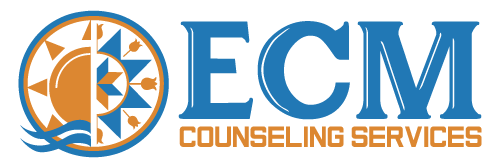How Marriage and Family Counseling Can Save Your Relationship
Maintaining healthy relationships is a universal aspiration, but it can be challenging. Life throws us curveballs, and sometimes, even the strongest bonds can weaken under the weight of challenges. If you find yourself facing relationship issues, know that you’re not alone, and there’s a beacon of hope – marriage and family counseling. In this blog, we’ll explore the transformative potential of counseling, sharing insights into how it can salvage and rekindle your most important relationships.
Understanding the Need for Counseling
Recognizing Common Relationship Issues
- Communication Problems: Effective communication is the lifeblood of any healthy relationship. When couples or family members struggle to express themselves or actively listen to one another, misunderstandings can escalate into more significant conflicts. Poor communication often leads to frustration, resentment, and feelings of being unheard.
- Trust Issues: Trust is the bedrock of strong relationships. It can be incredibly challenging to rebuild when trust is compromised, whether due to infidelity, lies, or other betrayals. Suspicion and doubt can erode even the most loving connections, so addressing trust issues head-on is essential.
- Intimacy and Affection Issues: Emotional and physical intimacy are vital to romantic relationships. Over time, couples may experience a decline in passion and affection, leading to feelings of distance and disconnection. These issues can impact the overall satisfaction and longevity of a relationship.
4. Parenting Conflicts: Parenting can strain relationships as couples navigate differing parenting styles, discipline methods, and expectations. Disagreements in this area can affect the couple and have lasting consequences for the children
The Impact of Unresolved Issues on Relationships
The failure to address these common relationship issues can have profound consequences. Unresolved problems often fester, leading to a toxic cycle of resentment and conflict. Over time, this can lead to emotional distance between partners or family members, undermining the sense of security and love that should define healthy relationships.
Communication problems, for example, can transform minor disagreements into major disputes, creating an environment of tension and misunderstanding. Trust issues can breed suspicion and jealousy, further eroding the foundation of trust that relationships require. Intimacy and affection issues may lead to emotional disconnection and a lack of physical closeness, leaving both partners unfulfilled. Parenting conflicts can result in ongoing stress and tension, making the family environment less conducive to growth and harmony.
The Stigma Surrounding Seeking Counseling
Despite the clear benefits of counseling, a stigma remains associated with seeking professional help for relationship issues. Many individuals and couples hesitate to reach out to a counselor due to fears of judgment or the misconception that counseling is only for relationships on the brink of collapse. It’s essential to dispel these myths and understand that counseling is a proactive step toward enhancing and strengthening relationships.
In reality, seeking counseling is a sign of strength and commitment to the relationship’s well-being. It provides a safe space for open and honest communication, guided by a trained professional who can offer valuable insights and strategies for overcoming challenges. As we visit a doctor for physical health concerns, consulting a counselor is responsible for nurturing our emotional and relational health.
Benefits of Marriage and Family Counseling
Marriage and family counseling offers hope for relationships that have weathered storms and faced seemingly insurmountable challenges. It’s a sanctuary where couples and families can explore their struggles and work towards healthier, happier dynamics. Here are the profound benefits of seeking professional counseling in these four key areas.
Improved Communication
Effective communication is the cornerstone of any successful relationship, and it’s an area where many couples stumble. Marriage and family counseling can provide the tools and techniques to break communication barriers. Couples learn to express themselves openly and honestly while developing active listening skills.
These newfound communication skills foster a deeper understanding and pave the way for healthier conflict resolution. By enhancing how partners and family members interact, counseling sets the stage for more meaningful and constructive conversations.

Rebuilding Trust
Trust is the fragile thread that binds relationships together, and when it’s broken, the consequences can be devastating. Whether trust has been eroded due to infidelity, betrayal, or other breaches of confidence, marriage and family counseling can provide a structured path toward rebuilding it.
Through guided discussions and therapeutic exercises, individuals can confront the issues that led to trust issues in the first place. Counselors help clients identify patterns of behavior and communication that may have contributed to the breakdown of trust, and they work together to establish trust-building strategies. Over time, the healing process can mend the wounds and create a stronger, more resilient bond.
Strengthening Emotional Intimacy
Emotional intimacy is the heart and soul of a relationship. The connection allows partners to feel safe, vulnerable, and indeed known by one another. Yet, emotional intimacy can wane over time, leaving partners feeling distant and disconnected. Marriage and family counseling provides a safe space for couples to explore their emotional needs and vulnerabilities.
Therapists guide them in rediscovering the emotional depth they once shared and help them reignite the spark in their relationship. Couples can rekindle their passion by nurturing emotional intimacy and creating a stronger emotional bond.
Resolving Conflicts and Parenting Issues
Conflicts are a natural part of any relationship, but they can escalate and become destructive when left unresolved. In families, parenting conflicts can add an extra layer of tension and strain. Marriage and family counseling equips individuals and couples with conflict resolution strategies that promote healthy dialogue and compromise.
These tools are invaluable in addressing disagreements and finding common ground. Additionally, for families, counseling provides a neutral space for parents to collaborate on parenting approaches and navigate challenges together. This fosters a harmonious family environment and ensures children grow up in a stable and supportive setting.
The Counseling Process
Here are the essential aspects of the counseling process, from finding the right counselor to understanding what to expect during sessions.
Finding the Right Counselor
Begin your counseling journey by conducting thorough research. Seek recommendations from trusted sources, such as friends, family members, or healthcare professionals. Online platforms, like therapist directories and reviews, can also provide valuable insights into potential counselors. Take the time to read about their qualifications, specialties, and areas of expertise.
Once you’ve compiled a list of potential counselors, it’s essential to interview them. Most therapists offer initial consultations or phone calls to discuss your needs and answer your questions. This is your opportunity to assess their compatibility with your goals and values. Ask about their counseling approach, experience with issues similar to yours, and availability. Trust your instincts and choose a counselor with whom you feel comfortable and understood.

Setting Goals for Counseling
Before embarking on the counseling journey, it’s crucial to identify the specific issues you wish to address. These might include communication problems, trust issues, parenting conflicts, or any other challenges you face in your relationships. Clarifying your concerns will help your counselor tailor their approach to your needs.
What do you hope to achieve through counseling? Setting clear and realistic goals is an integral part of the process. Whether it’s improved communication, rebuilding trust, or resolving conflicts, defining your desired outcomes provides a roadmap for your counseling journey. It’s essential to be open to change and growth as you work towards these goals.
The Counseling Sessions
The frequency and duration of counseling sessions can vary depending on your needs and the counselor’s recommendations. Typically, sessions occur weekly, lasting around 50 minutes each. However, your counselor may suggest a different schedule based on your circumstances. The duration of counseling can range from a few sessions to several months, depending on the complexity of your issues.
Counseling sessions provide a safe and confidential space for open and honest conversations. Your counselor will guide the discussion, helping you explore your thoughts, feelings, and experiences. They may use various therapeutic techniques and exercises to address your specific issues. It’s essential to approach sessions with an open mind and a willingness to engage in self-reflection and introspection.
The Importance of Active Participation
Successful counseling requires active participation from all parties involved. This means both individuals in a relationship or family should be committed to the process. While joint sessions address collective issues, individual sessions may be recommended to explore personal concerns that impact the relationship. Active involvement and a willingness to work on personal growth are essential components of the journey.
Outside of counseling sessions, you may be assigned homework or self-reflection exercises. These assignments reinforce what you’ve discussed in therapy and facilitate personal growth. Completing them diligently can accelerate progress and bring about lasting change in your relationships.
Your relationship’s health and vitality are worth every effort. If you’ve been grappling with communication issues, trust struggles, intimacy gaps, or parenting conflicts, don’t let these challenges define your future. Marriage and family counseling offers a path to renewal and resilience. Contact us today at 484-925-1514, and let our experienced professionals guide you toward a more harmonious and loving connection. Remember, seeking help is a sign of strength, and by taking this step, you’re investing in a brighter, more fulfilling tomorrow for you and your loved ones.




